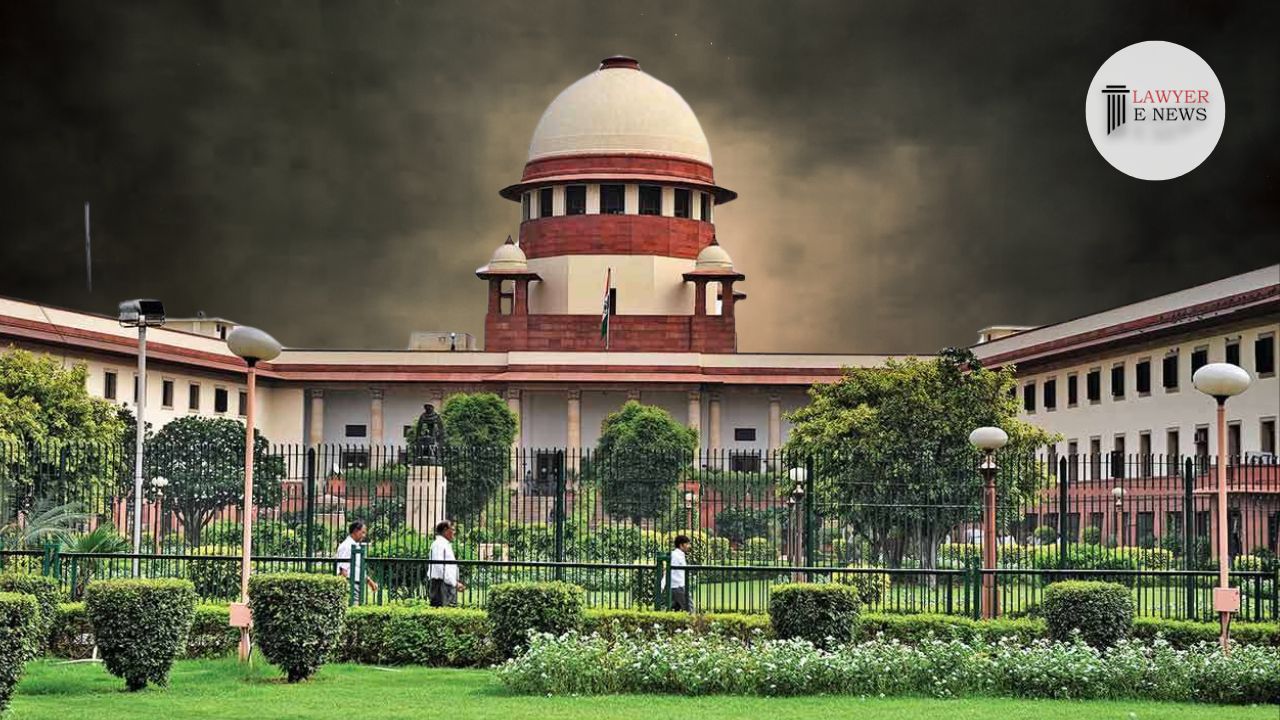-
by Admin
15 February 2026 2:36 AM



On dt. 17th March 2023, Supreme Court in case Neeraj Dutta Vs. State (Govt. of N.C.T. of Delhi) interpreting Section 20 of the Prevention of Corruption Act, 1988, held that the presumption can be invoked only when the two basic facts required to be proved under Section 7, are proved. These two basic facts are ‘demand’ and ‘acceptance’ of gratification. Also stated that the presumption under Section 20 is rebuttable, and even on the basis of the preponderance of probability, the accused can rebut the presumption. The demand for gratification and its acceptance must be proved beyond a reasonable doubt, and the fact that the demand and acceptance of gratification were for motive or reward can be proved by invoking the presumption under Section 20 provided the basic allegations of the demand and acceptance are proved. The court further clarified that the presumption under Section 20 can only be in respect of the offence under Section 7 and not the offences under Sections 13(1)(d)(i) and (ii) of the Act.
Mr. Ravijit Singh filed a complaint that he was asked to pay a bribe of Rs. 10,000 by the accused, who was working as an Inspector in the D.V.B./electricity department, for getting an electricity meter installed in his shop. The accused was caught red-handed by the raiding party while accepting the bribe. However, Mr. Singh died before the trial commenced. The prosecution relied on circumstantial evidence to prove the guilt of the accused and convicted for offenses under Section 7 and clauses (i) and (ii) of Section 13(1)(d) read with Section 13(2) of the Prevention of Corruption Act, 1988, and sentenced to undergo imprisonment and pay a fine. The co-accused, Mr. Yogesh Kumar, was convicted for the offense punishable under Section 12 of the PC Act but was later acquitted by the High Court.
Appellant argued that there was no evidence of the demanding illegal gratification, which is necessary to prove the offenses punishable under Sections 7 and 13(1)(d) of the PC Act. Also claimed that the court's findings were based on assumptions and speculations.
On the other hand, the respondent supported the impugned judgments and argued that the demand was proven by PW-5 and circumstantial evidence. Also stated that once the demand and acceptance are established, there is a presumption that the acceptance of gratification proves the existence of motive or reward.
Supreme Court during hearing found that previous decisions of benches of different numbers of judges were in conflict with each other. Therefore, the court referred a question to a larger bench regarding whether the guilt of a public servant can be inferred based on circumstantial evidence in the absence of direct evidence of demand of illegal gratification. The Constitution Bench answered the question and held that in the absence of the complainant's testimony, the prosecution can rely on circumstantial evidence to prove the demand of gratification in cases punishable under Sections 7 and 13(2) of the Prevention of Corruption Act, 1988.
Supreme Court stated that to prove allegations of demand of gratification by a public servant, it is necessary to establish proof beyond a reasonable doubt. The Constitution Bench has clarified that proof can be through modes other than direct oral or documentary evidence, including circumstantial evidence. However, in such cases, the prosecution must establish each circumstance from which the Court can draw a conclusion of guilt. In the absence of direct evidence of demand, the Court must consider whether there is any circumstantial evidence to prove the demand.
Supreme Court examined the evidence and found that the direct evidence presented by the prosecution was insufficient to prove the demand of gratification made by the accused. The raiding party consisted of PW5, an Officer in Irrigation Department, PW6, a Traffic Inspector, and PW7, an ACP, as the complainant had already died.
The prosecution argued that the first demand was made by the accused to the complainant when he met her at her residence, but there was no evidence to support this. The prosecution's case was based on the second demand, which PW5 witnessed during a trap set up by the raiding party. However, PW5's testimony did not confirm that the accused made a demand for gratification in exchange for the provision of an electricity meter. PW5's testimony only indicated that the accused asked the complainant to give her the papers regarding his electricity meter and Rs. 10,000/- as she was in a hurry. The witness did not state that a demand for gratification was made by the accused in his presence.
The Supreme Court held that the evidence presented did not prove that the accused made a demand for gratification, and therefore, the accused could not be found guilty of corruption. Appeal Allowed.
Neeraj Dutta Vs. State (Govt. of N.C.T. of Delhi)
